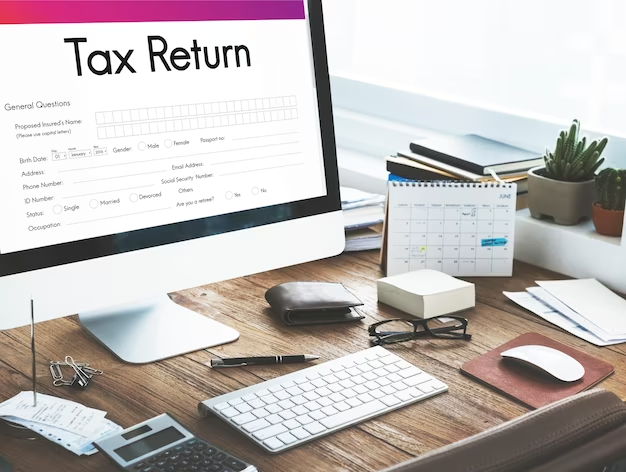When you enter the realm of business ownership, one of the first and most crucial steps is to understand the maze of identification and registration numbers that your venture will require. These numbers are not just bureaucratic formalities; they serve as vital identifiers for your business in the eyes of the government and regulatory agencies, especially when it comes to the all-important subject of taxes. Whether it’s for tax identification, tax registration, or obtaining necessary permits, knowing your business’s identification numbers is pivotal for compliant and smooth operations.
The Importance of Identification Numbers in Business
Identification numbers for businesses are much like social security numbers for individuals. They offer a way for the government and other entities to track your business for tax, legal, and operational purposes. These numbers usually come in various forms, each serving a specific function. For instance, your federal tax identification number (often called an Employer Identification Number or EIN) is a must-have for tax purposes and hiring employees. Similarly, state and local jurisdictions may issue ID numbers for businesses that are necessary for state tax obligations or other regulatory requirements.
Understanding Different Types of Business Identification Numbers
There are several key identification numbers that a business owner needs to be aware of:
- Employer Identification Number (EIN): Given by the federal government, this number is necessary for tax reporting, hiring employees, and opening a business bank account.
- State Tax ID Numbers: These vary by state and are needed for handling state taxes and sometimes, for business licenses.
- DUNS Number: Issued by Dun & Bradstreet, it’s used to establish business credit profiles.
- NAICS Code: This classification number helps in identifying the primary business activities for statistical purposes.
When focusing on tax-related identification, you will often deal with two main numbers: the tax identification number and the tax registration number. The tax identification number, or tax ID, is generally the EIN at the federal level. This is the number that you would provide on tax forms and during transactions that require your business to be identified by the IRS. For state taxes, your business might need a separate tax registration number, often referred to as a TRN, which allows you to collect and remit sales tax or other state-specific taxes.

Applying for Your Business Identification Numbers
The process of obtaining these various identification numbers will differ based on the type of number and the issuing authority. Here’s a step-by-step guideline for obtaining the most critical ones:
- Federal EIN: Apply online through the IRS website or by mailing in form SS-4.
- State ID Numbers: Visit your state’s department of revenue or taxation website for application instructions.
- DUNS Number: Request one through Dun & Bradstreet’s website.
Securing these identification and registration numbers can be done relatively quickly, often within a few days for online applications. However, it’s essential to plan to ensure that your business compliance is not disrupted due to missing numbers.
The Role of Identification Numbers in Tax Compliance
Your identification numbers serve as the linchpin in managing your business’s taxes effectively and staying in good legal standing. These numbers ensure that:
- Your business is recognized for tax purposes.
- You can employ a workforce lawfully.
- You can accurately report and submit business taxes and other financial information.
- You remain transparent and traceable for financial activities.
Moreover, failing to use the correct identification numbers can result in misfiled taxes, penalties, and delays in critical business functions, such as obtaining financing or processing payments.
| Identification Number Type | Primary Purpose | Where to Apply |
|---|---|---|
| EIN | Federal tax purposes, hiring employees | IRS (online or SS-4) |
| State Tax ID | State tax reporting and compliance | State revenue department |
| DUNS Number | Establishing a credit profile | Dun & Bradstreet |
| NAICS Code | Statistical classification of business activities | Self-assigned based on NAICS structure |
The specificity and universal application of identification numbers can seem daunting, but they are foundational to your business infrastructure and cannot be overlooked. By being proactive about acquiring and managing these numbers, you solidify your company’s credibility and ensure your administrative functions flow seamlessly.
Effective Use of Your Business Identification Numbers
Once you have acquired your business identification numbers, it’s vital to use them appropriately to facilitate various aspects of business operations. These numbers should appear on all official documents, including tax filings, loan applications, employment tax reports, and invoices. An EIN or state tax ID helps in establishing accounts with vendors and suppliers as well. Maintaining accurate records of these numbers and ensuring they are readily available to authorized personnel streamlines administrative processes and avoids costly mistakes.
Furthermore, you must understand when and where to use each specific number. For instance, your EIN is the number most federal agencies will request, while your state ID number is critical for state-level interactions. Here’s how to apply these numbers effectively:
- In tax documents: Always use your correct EIN or state tax ID to prevent processing delays.
- In business contracts: Including identification numbers in contracts establishes your business as a legitimate entity.

Keeping Your Business Identification Numbers Updated
Business identification numbers are not set it and forget it elements; they require attention and updates. If your business undergoes significant changes, such as a change in ownership or business structure, you may need to apply for new identification numbers. Additionally, some numbers, like certain state or local permits, may have expiration dates and need to be renewed periodically. It’s crucial to keep abreast of these changes and their deadlines to maintain compliance.
For example, if you move your business to a new location, some states require you to update your business registration information, which could lead to a new state tax ID number:
- Check state regulations: Determine if a move or other change necessitates a new ID number.
- Apply promptly: If required, apply for a new number well before you make the change to avoid disruption.
Troubleshooting Common Issues with Identification Numbers
Errors or issues with business identification numbers are not uncommon and can be rectified if addressed promptly. Common problems include typos on official documents, misplaced records, or missed renewal deadlines. If you notice an error or haven’t received a requested identification number, contacting the issuing agency as soon as possible is crucial to avoid potential interruptions in your business activities.
Moreover, safeguard your identification numbers just as you would your personal social security number to prevent unauthorized use or identity theft. Here are some additional tips:
- Regularly review statements and records: Ensure that all identification numbers match across different documents.
- Keep secure records: Store your ID numbers in a secure location, both physically and digitally.

Conclusion
Ultimately, understanding and managing your business’s identification numbers is fundamental for operational efficiency, financial clarity, and legal compliance. By staying informed about your requirements, you can ensure that your business has the necessary tools to thrive in a competitive marketplace.
FAQs
What is a Tax Identification Number (TIN) in the UAE?
A Tax Identification Number (TIN) in the UAE is a unique identifier assigned to individuals and businesses for tax purposes by the Federal Tax Authority (FTA). It is used for filing tax returns, conducting tax transactions, and other related activities.
Who needs to obtain a Tax Identification Number (TIN) in the UAE?
Anyone conducting business or earning income in the UAE, including residents, expatriates, and companies, may need to obtain a Tax Identification Number (TIN) from the Federal Tax Authority (FTA) depending on their tax obligations.
How can I apply for a Tax Identification Number (TIN) in the UAE?
To apply for a Tax Identification Number (TIN) in the UAE, follow these steps:
1. Visit the official website of the Federal Tax Authority (FTA).
2. Look for the section related to TIN registration.
3. Fill out the online application form with accurate information.
4. Submit the required documents as specified by the FTA.
5. Await confirmation and issuance of your TIN.
What documents are required to apply for a Tax Identification Number (TIN) in the UAE?
The documents required to apply for a Tax Identification Number (TIN) in the UAE may vary depending on your individual or business circumstances. However, common documents may include proof of identity (passport or Emirates ID), proof of residence, trade license (for businesses), and other relevant financial documents.
Is there a fee for obtaining a Tax Identification Number (TIN) in the UAE?
As of the latest information available, there is typically no fee for obtaining a Tax Identification Number (TIN) in the UAE. However, this may be subject to change, and it’s advisable to check the official guidelines provided by the Federal Tax Authority (FTA).




